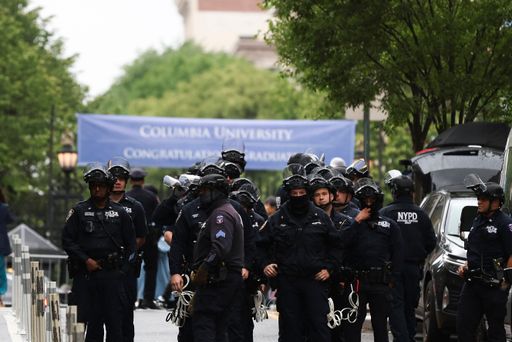Columbia University has announced it will pay $200 million to the US government to settle federal investigations and restore access to billions in federal funding, following pressure from President Donald Trump.
In a broad agreement with multiple federal agencies, Columbia said it would pay the sum over three years and comply with rules prohibiting the consideration of race in admissions and hiring decisions.
"Columbia University has reached an agreement with the United States government to resolve multiple federal agency investigations into alleged violations of federal anti-discrimination laws," the university said in a statement.
An additional $21 million will be paid to resolve a case brought by the US Equal Employment Opportunity Commission.
"Under today’s agreement, a vast majority of the federal grants which were terminated or paused in March 2025—will be reinstated and Columbia’s access to billions of dollars in current and future grants will be restored," the statement added.
Trump hails victory
The agreement is widely seen as a victory for Trump, who has long accused elite universities of harbouring left-wing bias and fostering hostility toward his administration’s views.
Harvard University is also facing a similar standoff over federal funding, and observers say the Columbia settlement could serve as a template for future deals.
"This agreement marks an important step forward after a period of sustained federal scrutiny and institutional uncertainty," said Columbia’s acting president, Claire Shipman.
"The settlement was carefully crafted to protect the values that define us and allow our essential research partnership with the federal government to get back on track. Importantly, it safeguards our independence."

Campus protests
The settlement follows months of pressure sparked by pro-Palestine protests at Columbia that resulted in clashes with law enforcement.
Some Jewish students claimed they felt threatened and unprotected, drawing national attention and triggering congressional hearings led by Republican lawmakers.
Under the agreement, Columbia will maintain a permanent security force to prevent demonstrations in academic spaces and will implement stricter vetting procedures for international students, including information-sharing with federal authorities.
Disciplinary actions involving students on visas will also be reported to immigration officials, according to The New York Post.
The protests led to the resignation of Columbia’s former president Minouche Shafik last August, amid mounting criticism over her handling of the unrest.



















